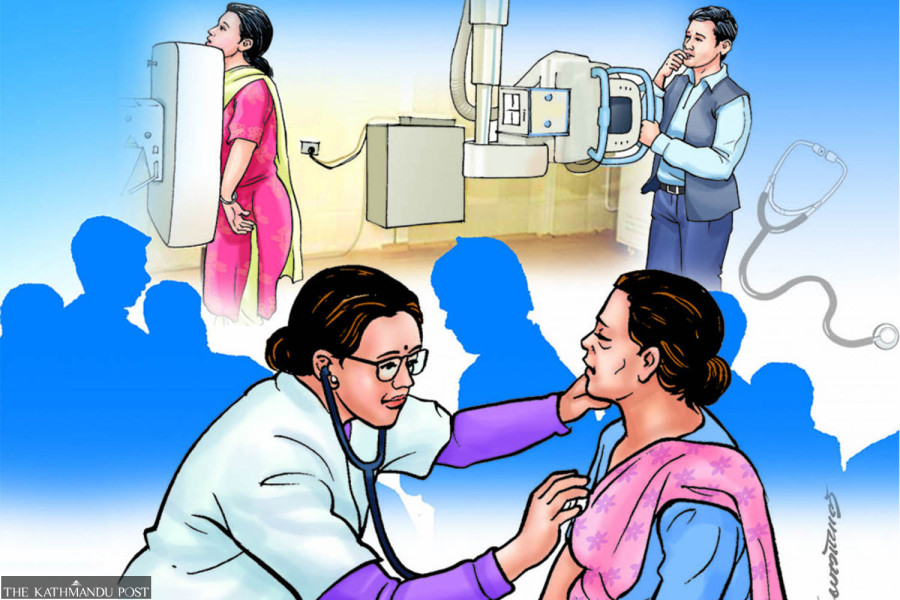Health
PEN-Plus project to be piloted in four more district hospitals
The programme will focus on alleviating the burden of non-communicable diseases, according to officials.
Arjun Poudel
In a bid to study the impact of integrated care of non-communicable diseases, the Ministry of Health and Population has decided to expand the piloting of the Pen-Plus programme in four more district hospitals of different provinces.
Pen-Plus is an integrated care delivery model that focuses on alleviating the burden of non-communicable diseases—type 1 diabetes, rheumatic heart disease, congenital heart disease, sickle cell disease, and Thalassemia.
The provinces selected for piloting are Madhesh, Karnali, Lumbini and Sudurpaschim, said Dr Phanindra Baral, chief of the Non-communicable Disease and Mental Health Section at the Epidemiology and Disease Control Division. “Health workers in the selected hospitals will be trained to screen the ailments and provide treatments.”
The programme has already been introduced in Damak and Bardia hospitals with financial support from Harvard Medical School, USA. The Kathmandu Institute of Child Health, the brainchild of renowned heart surgeon Dr Bhagwan Koirala, received a grant from the Non-Communicable Diseases and Injuries Poverty Commission to carry out piloting in the designated hospitals.
Under the programme, screening and treatment services for diabetes mellitus—type I and type II, cardiovascular diseases—rheumatic heart disease, congenital heart disease, Ischemic heart disease and hypertension, chronic respiratory disease—Asthma and chronic obstructive pulmonary disease will be provided.
Likewise, treatment for hemoglobinopathies—sickle cell disease and thalassemia, cancer—childhood cancer, cervical cancer and breast cancer; neurodevelopmental disorders—intellectual disability, autism spectrum disorders, attention deficit hyperactivity disorders and epilepsy will be provided.
“Over 5,000 patients with these conditions have already received services from the two hospitals in Damak and Bardiya,” said Baral. “The programme will be expanded nationwide if the pilot projects show a positive impact.”
A 2019 study on the prevalence of non-communicable diseases by the Nepal Health Research Council found that the conditions accounted for 71 percent of the deaths in the country.
The study showed that hypertension, diabetes, renal malfunction, liver problems, heart issues, and cervical cancer are responsible for the majority of the morbidity and mortality in Nepal.
The study was primarily focused on the behavioural risk factors including tobacco and alcohol consumption, and biological risk factors—increased blood pressure, heavyweight, obesity, abnormal lipid prevalence, coronary artery disease, chronic obstructive pulmonary disease and diabetes.
Doctors say non-communicable diseases, which would earlier be diagnosed mostly among those in the 60-70 age bracket, are now being seen in people as young as 25. Youths are living with high blood pressure, fatty liver and diabetes.
The health ministry had proposed free screening for some non-communicable diseases to people above 40 years this year to address the growing burden of non-communicable diseases. However, the proposal has not yet been implemented.
Doctors say a majority of Nepali people do not undergo testing unless it’s an emergency and do not know if they are suffering from a serious ailment. Doctors say a lot of lives will be saved if the testing for non-communicable diseases is carried out on a regular basis and is made free in the state-run health facilities.




 9.83°C Kathmandu
9.83°C Kathmandu















